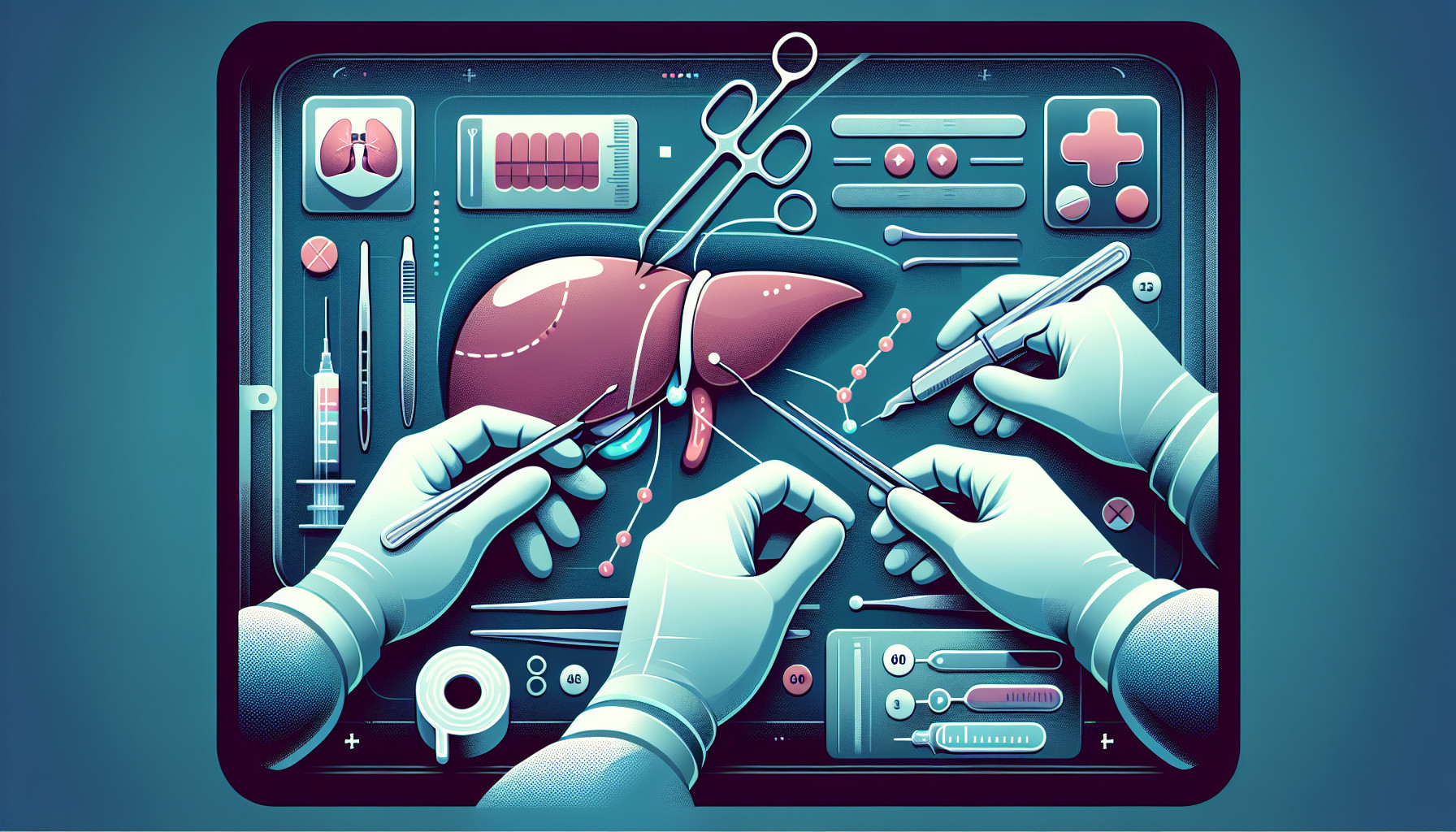Our Summary
This research paper talks about the role of liver biopsy in diagnosing and managing liver diseases. Some experts have been doubting the need for liver biopsy because of the improvements in medical imaging like MRI and CT scans, blood tests, and the development of artificial intelligence. This paper discusses how liver biopsy is still relevant today and in the future for both non-cancerous and cancerous liver diseases, even with the advancements in non-surgical lab tests, medical imaging, and digital technologies.
FAQs
- Why is the role of liver biopsy in diagnosing and managing liver diseases being questioned?
- How does the advancement in medical imaging, blood tests, and artificial intelligence affect the relevance of liver biopsy?
- Is liver biopsy still necessary for diagnosing both non-cancerous and cancerous liver diseases despite the advancements in non-surgical lab tests and digital technologies?
Doctor’s Tip
One important tip a doctor might give a patient about liver biopsy is to follow any pre-procedure instructions carefully, such as fasting before the procedure and avoiding certain medications that may affect the results. It is also important to inform the doctor about any allergies or medical conditions before the procedure. After the biopsy, it is crucial to follow post-procedure instructions, such as avoiding strenuous activities and monitoring for any signs of infection or complications. It is also important to follow up with the doctor to discuss the results and any further steps in managing the liver condition.
Suitable For
Patients who are typically recommended for liver biopsy include:
- Patients with suspected liver diseases such as hepatitis, cirrhosis, fatty liver disease, and autoimmune liver diseases.
- Patients with abnormal liver function tests that cannot be explained by other diagnostic tests.
- Patients with liver tumors or suspected liver cancer.
- Patients with unexplained liver enlargement or nodules on imaging studies.
- Patients with suspected drug-induced liver injury.
- Patients with suspected metabolic liver diseases such as hemochromatosis or Wilson’s disease.
- Patients with suspected granulomatous liver diseases such as sarcoidosis.
- Patients undergoing liver transplant evaluation.
- Patients with suspected liver infections such as tuberculosis or fungal infections.
- Patients with suspected vascular liver diseases such as Budd-Chiari syndrome or portal vein thrombosis.
Overall, liver biopsy is recommended for patients who require a definitive diagnosis for their liver disease or for monitoring disease progression and treatment response.
Timeline
Before Liver Biopsy:
- The patient’s doctor will discuss the reasons for the liver biopsy and obtain consent.
- The patient may need to fast for a certain period before the procedure.
- Blood tests may be conducted to check the patient’s clotting ability and liver function.
- The patient may be asked to stop taking certain medications that can affect blood clotting.
- The patient will be informed about the procedure and any potential risks or complications.
During Liver Biopsy:
- The patient will be given local anesthesia to numb the area where the biopsy will be taken.
- The doctor will use a needle to remove a small sample of liver tissue.
- The patient may feel pressure or discomfort during the procedure.
- The biopsy sample will be sent to a laboratory for analysis.
After Liver Biopsy:
- The patient will be monitored for a few hours to check for any complications, such as bleeding or infection.
- The patient may experience some pain or discomfort at the biopsy site, which can be managed with over-the-counter pain medications.
- The patient may be advised to avoid strenuous activities for a few days.
- The doctor will discuss the biopsy results with the patient and recommend further treatment, if necessary.
What to Ask Your Doctor
- Why is a liver biopsy necessary in my case?
- What information will the liver biopsy provide that other tests cannot?
- What are the risks and potential complications of a liver biopsy?
- How should I prepare for the liver biopsy procedure?
- What can I expect during and after the liver biopsy procedure?
- How long will it take to get the results of the liver biopsy?
- What will the results of the liver biopsy indicate for my treatment plan?
- Are there any alternative tests or procedures that could be considered instead of a liver biopsy?
- How frequently will I need to undergo liver biopsies in the future for monitoring my condition?
- Are there any lifestyle changes or precautions I should take after the liver biopsy procedure?
Reference
Authors: Gopal P, Hu X, Robert ME, Zhang X. Journal: Hepatol Commun. 2025 Jan 7;9(1):e0628. doi: 10.1097/HC9.0000000000000628. eCollection 2025 Jan 1. PMID: 39774070
